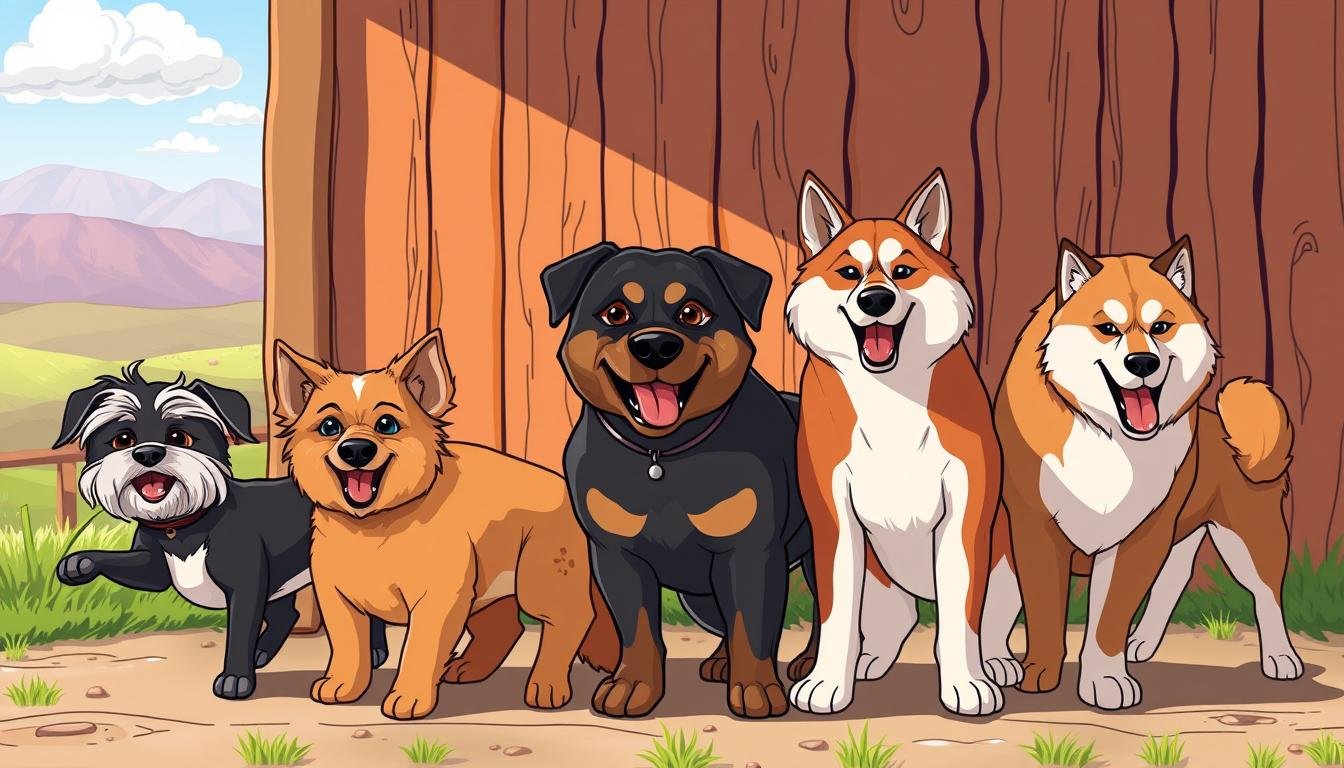When I first brought home my furry friend, I knew I wanted a name that stood out. Something with history, meaning, and a touch of elegance. That’s when I discovered the beauty of Latin-inspired names. Though Latin is often seen as a language of the past, its influence is alive and well in our modern world.
Latin, the mother of Romance languages, has shaped many words we use today. Its classical heritage offers a unique way to honor your dog with a name that feels timeless. Whether you’re drawn to the strength of ancient Rome or the poetic charm of Latin roots, there’s a perfect name waiting for your companion.
Choosing a name is more than just a label—it’s a celebration of tradition and personality. In this guide, I’ll share insights into the history, popular choices, and practical tips to help you find the ideal name for your beloved pet.
Key Takeaways
- Latin-inspired names add a timeless and elegant touch to your pet’s identity.
- The classical heritage of Latin enriches modern naming traditions.
- Choosing a name is a symbolic gesture that celebrates tradition and personality.
- This guide explores history, popular names, and practical naming tips.
- Latin roots provide unique and meaningful inspiration for naming your dog.
Discovering the Rich History Behind Latin Canine Names
The tradition of naming dogs has deep roots in ancient Roman culture, where these loyal companions played vital roles in society. From guarding homes to assisting in hunts, dogs were valued for their skills and loyalty. Their names often reflected their purpose, creating a legacy that continues to inspire modern naming practices.
The Roman Influence: Ancient Roots and Traditions
In ancient Rome, dogs were more than just pets—they were symbols of protection and companionship. The Latin word for dog, “canis,” highlights their significance in Roman life. Names like “Fidelis” (faithful) and “Audax” (bold) were common, emphasizing traits admired by the Romans.
These names were not arbitrary. They often mirrored the roles dogs played, such as guarding estates or accompanying hunters. This practice shows how deeply intertwined dogs were with Roman society and culture.
From Antiquity to Modern Naming Trends
The influence of Roman traditions has endured through the centuries. Many modern dog names draw inspiration from Latin roots, blending ancient elegance with contemporary appeal. Words like “Amor” (love) and “Pax” (peace) continue to resonate, offering timeless options for pet owners.
This evolution from antiquity to today demonstrates the lasting impact of Roman culture. By choosing a Latin-inspired name, you’re not just naming your dog—you’re honoring a rich historical legacy.
latin names for dogs: Exploring a Timeless Tradition
Finding the perfect name for your dog can feel like uncovering a hidden treasure. It’s a chance to honor their personality while connecting to a rich historical legacy. Latin-inspired names offer a unique blend of elegance and meaning, making them a timeless choice for your furry friend.
Popular Female Latin Dog Names
For female dogs, Latin names often evoke grace and beauty. Consider “Celeste,” meaning “heavenly,” or “Aurora,” which translates to “dawn.” These names not only sound beautiful but also carry deep meanings that reflect your pet’s charm.
Another favorite is “Luna,” meaning “moon.” It’s a simple yet poetic choice that suits dogs with a calm and gentle demeanor. These names are perfect for owners who want to celebrate their pet’s elegance and spirit.
Dominant Male Latin Dog Names
Male dogs often inspire names that convey strength and loyalty. “Maximus,” meaning “greatest,” is a powerful choice for a confident and bold companion. “Rex,” which translates to “king,” is another classic option that exudes authority.
For a more playful yet meaningful name, consider “Felix,” meaning “successful” or “lucky.” These names not only highlight your dog’s personality but also connect them to a legacy of strength and valor.
Ancient and Unique Inspirations
If you’re looking for something truly unique, explore ancient Latin names with historical significance. “Adrian,” meaning “the dark one,” or “Cassius,” which translates to “hollow,” offer a touch of mystery and depth.
These names are ideal for owners who want to honor history while giving their dog a distinctive identity. They also serve as a conversation starter, showcasing your appreciation for tradition and culture.
| Category | Name | Meaning |
|---|---|---|
| Female | Celeste | Heavenly |
| Female | Aurora | Dawn |
| Male | Maximus | Greatest |
| Male | Rex | King |
| Ancient | Adrian | The dark one |
| Ancient | Cassius | Hollow |
Choosing a Latin-inspired name for your dog is more than just a label—it’s a celebration of history, personality, and the bond you share. Whether you opt for a classic or unique option, each name carries a story waiting to be told.
Naming Tips and Historical Insights for Your Canine Companion

Selecting the right name for your dog is a meaningful step in building a strong bond. It’s not just about picking something that sounds good—it’s about choosing a name that works for training, reflects their personality, and honors their legacy. Here’s how to make the process both practical and meaningful.
Effective Naming Strategies for Training and Clarity
When picking a name, clarity is key. Short, one or two-syllable names are easier for your dog to recognize. Words with hard consonants, like “Max” or “Rex,” stand out more during commands. Avoid names that rhyme with common cues like “sit” or “stay” to prevent confusion.
If your dog doesn’t respond well to their name, don’t hesitate to change it. Dogs adapt quickly, and a new name can improve communication. Remember, the goal is to create a strong connection through clear and consistent cues.
Lessons from Legendary Canine Histories
History offers valuable lessons about the power of a name. Take Becerillo, a legendary war dog from the 16th century. His name, meaning “little calf,” reflected his strength and loyalty. Stories like his remind us that a name can shape a dog’s identity and legacy.
By blending historical resonance with practical considerations, you can create a name that’s both functional and meaningful. Whether inspired by ancient traditions or modern trends, your dog’s name will be a reflection of their unique story.
Conclusion
Exploring the world of naming has been a journey of discovery and connection. From ancient traditions to modern trends, the process of choosing a name for your dog is both meaningful and fun. It’s a chance to honor their personality while celebrating a rich historical legacy.
A well-picked name blends elegance and practicality, echoing centuries of tradition. Whether inspired by ancient roots or contemporary trends, each choice tells a story. My exploration has shown that history and culture are valuable guides in this process.
I encourage you to make a thoughtful decision when naming your dog. Use the tips and insights shared here to find a title that resonates. Celebrate the timeless elegance that a latin-inspired dog name can bring to your beloved companion.




